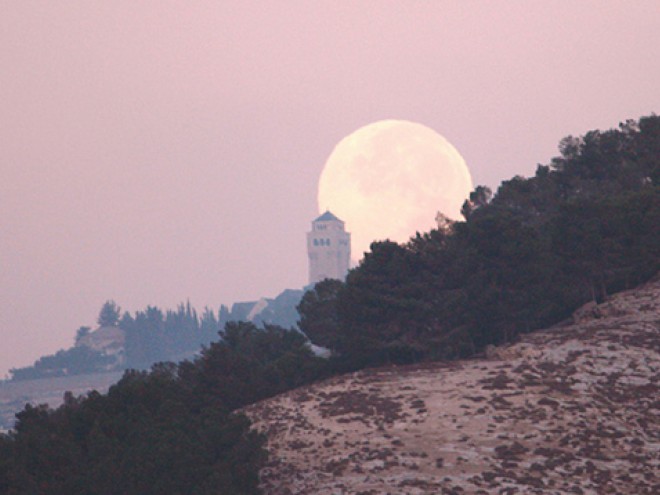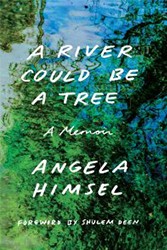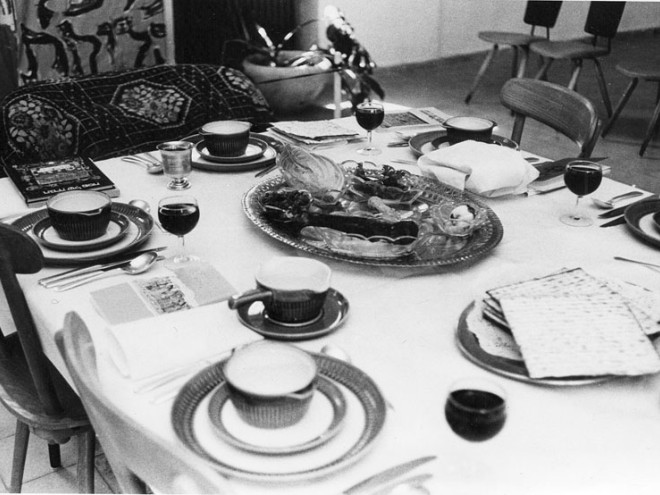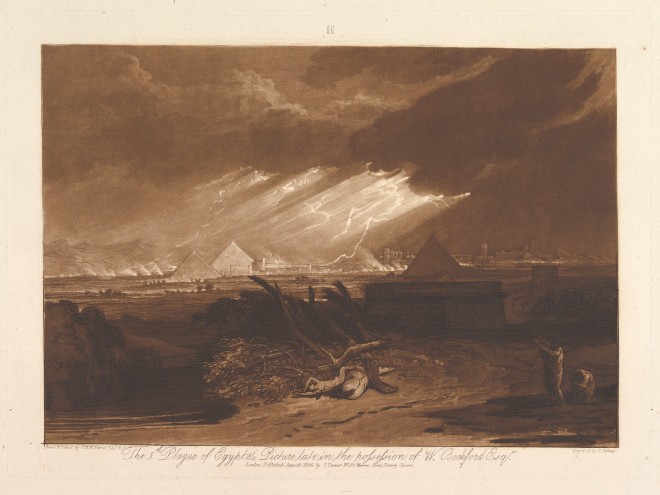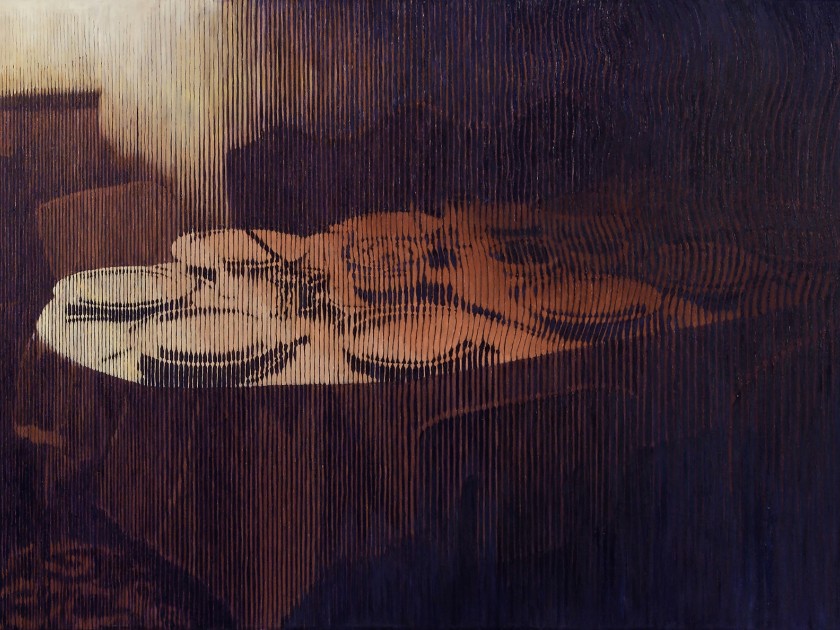
Seder Table by Dvora Morag, oil on canvas, solo exhibition “History of Silence”, exhibition at Artist House Tel-Aviv, 2009
I’m leaving Egypt and taking with me — Joseph’s mummy.
That’s what I’m going to say this year when we play the “I’m leaving Egypt and bringing with me…” game that has become our Passover seder tradition. My guests have brought a wide range of items, including Bobby Zimmerman’s original vinyls, eyebrow tweezers, dogs and children, and once, my brisket!
No one has volunteered to take Joseph’s mummy yet. But this year it is imperative that someone bring Joseph out of Egypt and into Israel.
“When God takes you up from this land to the land He promised to Isaac and Jacob…you shall take up my bones from this place,” Joseph tells his fellow Israelites as he nears death. Since Joseph was embalmed, I’m assuming his “bones” were, in fact, a mummy.
Generations later, a different Pharaoh oppresses and enslaves the Israelites. They flee Egypt in the dead of night with no time to let the dough rise. Despite their haste, they remember the promise their ancestors made and raid the tomb of the long-dead Joseph. What was it like to schlepp his mummy with them through the desert for the next forty years? What poor soul got that work detail? Did anyone ever unwrap the linen strips to peek at Joseph’s mummified body?
It’s only after I plough through the books of Exodus, Leviticus, Numbers, Deuteronomy, and Joshua (which seems to take forty years), and I discover the Israelites had kept their promise, “And the bones of Joseph, which the Israelites had brought up from Egypt, they buried in Shechem.”
Joseph was responsible for the Israelites’ descent into Egypt. Joshua was Moses’ general and right-hand man who led them through the desert and into the Promised Land. He was responsible for their ascent, their aliyah, back to Israel.
By remembering their predecessors’ promise to Joseph, the Jews were invoking the spirit of Passover — honoring our ancestors, and bringing the past into the present.
Now the two men are long dead and buried. This reflects two of the main motifs throughout the Bible: seed and soil. God said Abraham’s seed would multiply like the stars of heaven, and He would give to Abraham’s descendants this land. Joseph, Abraham’s great-grandson was buried in the soil God had promised to his seed. The land, the Israelite people, and their God were inextricably linked.
Passover is a holiday that is based on an ancient, collective memory. Each year, Jews worldwide read from the Haggadah which tells the story of the Israelites’ Exodus from Egypt over 3,000 years ago. Joseph’s mummy is a kind of metaphor for Passover itself. By remembering their predecessors’ promise to Joseph, the Jews were invoking the spirit of Passover — honoring our ancestors, and bringing the past into the present.
At the very end of the Passover seder Abraham’s far-flung seed around the world will joyously sing, as they have for thousands of years, a rousing rendition of the final words of the Haggadah: “L’Shana Haba’ah B’ Yerushalayim.” Next year, in Jerusalem. Even if we know we won’t be there, even if we don’t wish to be there, even if we are ambivalent about modern day Israel, no matter our political leanings, we recall the ancestral hope to return next year to Israel’s soil.
Joseph’s mummy is emblematic of our ancient desire to leave Egypt — or Russia, Germany, Iraq, or anywhere — and return home, to a safe haven. Not to toil under oppression, but to live. So this year, especially this year, I will bring Joseph and his dream — and the dreams of many today who are prevented from going home — with me when I leave Egypt.
Angela Himsel’s writing has appeared in The New York Times, the Jewish Week, the Forward and elsewhere. Her memoir is listed in the 23 Best New Memoirs at bookauthority.org. She is passionate about her children, Israel, the Canaanites and chocolate.
